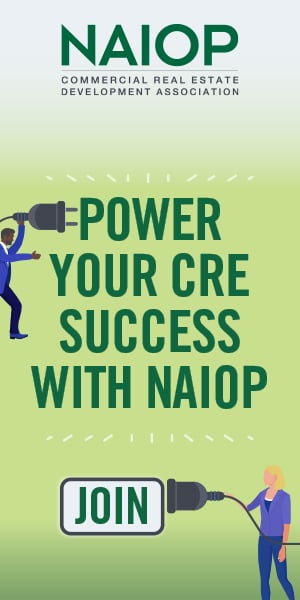Integrating Vaccinations into Wellness Programs

The real estate industry faces unique challenges in designing vaccination programs based on workplace types and the nature of jobs.
As COVID-19 vaccines continue to roll out, and with the possibility of booster shots for variants as fall approaches, many commercial and residential property management companies, as well as sales and leasing brokerages, are considering how to deal with vaccinations within their workplaces.
If designing a company-wide vaccine program, consider prioritizing vaccine distribution based on job function. For example, some essential employees must work in person to keep commercial buildings functioning. Meanwhile, a significant portion of the workforce will likely continue to work from home until this fall or beyond.
Tying Vaccinations to Wellness Programs
There are some practical steps to consider when designing a vaccination program that works best for the company’s operational needs, culture and the overall safety of its employees.
Know the essentials. Review state plans to determine where employees’ jobs may fall in any tiered rollout of vaccinations that may remain, including any timeframes for the rollout. Some employees will be eligible to receive the vaccine at an earlier time than others. Employees such as facility managers and those performing in-person appraisals, valuations or showings may also be prioritized under state definitions of essential workers. Some states and locales also have rules requiring employees to delay vaccinations if they are working remotely.
Spread the word. It’s one thing to be eligible for a COVID-19 vaccination; it’s another thing to find a place to get one. Make it easier for employees to get vaccinated by putting together educational information on when employees are eligible for vaccinations and how they can apply. Decreasing employee confusion and stress should be a primary part of the policy.
Consider the Scope
The first crucial decision is whether to create a mandatory or voluntary vaccination policy.
Currently, the U.S. Equal Employment Opportunity Commission (EEOC) does not prohibit employers from implementing mandatory vaccinations under federal anti-discrimination laws. The EEOC guidelines do note certain obligations under a mandatory vaccination program, such as exceptions and accommodations based on disability, pregnancy and employees’ sincerely held religious beliefs.
Keep in mind, the EEOC only deals with federal laws and does not address state or local laws. That means employers must stay up to speed on current pending state legislation on COVID-19 vaccines. Presently, there are state bills pending that take both sides on permitting or prohibiting mandatory vaccinations, so this issue could become more complicated over time.
Encouraging Employees on Vaccinations
Several notable national employers have grabbed headlines for offering their workers cash, paid time off and gift cards for getting vaccinated. Incentivizing for vaccines is not a new concept in the world of corporate wellness. Flu vaccinations have been part of wellness strategies for years.
Keep in mind, though, that incentives for wellness programs are not without their complexities. There’s a risk of regulatory backlash if incentives are substantial enough to be perceived as coercive, given the voluntary nature of wellness initiatives.
The EEOC maintains that employees could feel coerced to participate if the incentive offered is too high, disclosing protected medical information in order to earn it. Lower-risk strategies, like paid time off offered to all employees, or a modest prize like a water bottle or T-shirt, are the safest approach.
Other issues that employers must address are medical and religious accommodation requests, potential absences post-vaccination if employees have side effects, paid leave that might be available and employee objections to mandatory vaccination policies. Additional issues include safety measures and practices to keep the workplace intact, confidentiality of vaccination information obtained, and evolving federal, state and local guidance. Teaming with human resources, legal, safety and occupational health business partners is key to working through these and other emerging issues.
What Incentives are Permissible?
Much like a flu vaccination program, the guidelines for adding the COVID-19 vaccination to a wellness program means compliance with applicable federal, state or local laws. Developing a COVID-19 vaccination strategy has been hampered by a lack of guidance on incentive limits from the EEOC. Long-awaited proposed rules regarding wellness program incentive limits were released in January 2021, but then put on hold pending review by the new administration in Washington.
Until clear guidance on incentive limits is published by the EEOC, proceed with care and talk to a legal advisor. Risk levels associated with incentivizing the COVID-19 vaccine will depend on several factors including the amount of the incentive being offered, who administers the vaccine, and protocols for accommodating employees who cannot be vaccinated for medical or religious reasons.
HR would assume the least risk by simply educating around vaccine safety and availability. Other lower-risk strategies might include granting a set amount of paid time off to get the vaccination and making that benefit available to all employees. Keep in mind, the higher the financial value, the greater chance a program could be viewed as unnecessarily coercive, making an employee feel that participating was not voluntary. And this would be a violation of the wellness program rules.
Address Employee Concerns
Since COVID-19, companies are implementing or improving wellness programs and offering enhanced training and better communication. Company leaders can set the tone and calm fears by visibly getting their own vaccines, as well as helping employees navigate available resources. Explain the science behind the vaccines and what can be expected with both the Pfizer and Moderna two-dose vaccines or from the Johnson & Johnson single-dose vaccine. The U.S. Centers for Disease Control (CDC), Johns Hopkins and Mayo Clinic have excellent websites for clinical information.
Consider the mental well-being of workers as vaccination plans proceed. As a society, we are dealing with a mental health crisis as a function of the coronavirus pandemic and its fallout. While education around it may allay fears, HR should also see this as an opportunity to remind employees of the mental health resources available under their health plans and Employee Assistance Programs (EAPs).
Wellness programs that incorporate vaccine initiatives can be an important step forward for organizations that use a combination of strategies, such as a strong education campaign, promoting available health resources, improving access to vaccinations and motivating employees to get immunized through a fully vetted incentive program.
In just a matter of months, the coronavirus pandemic dramatically changed the landscape of the commercial real estate and housing markets, especially in big cities. With the rollout of successful vaccines, the economy will change again — this time, in a positive way.
Wendy King is the director of health and performance for Hub International.





